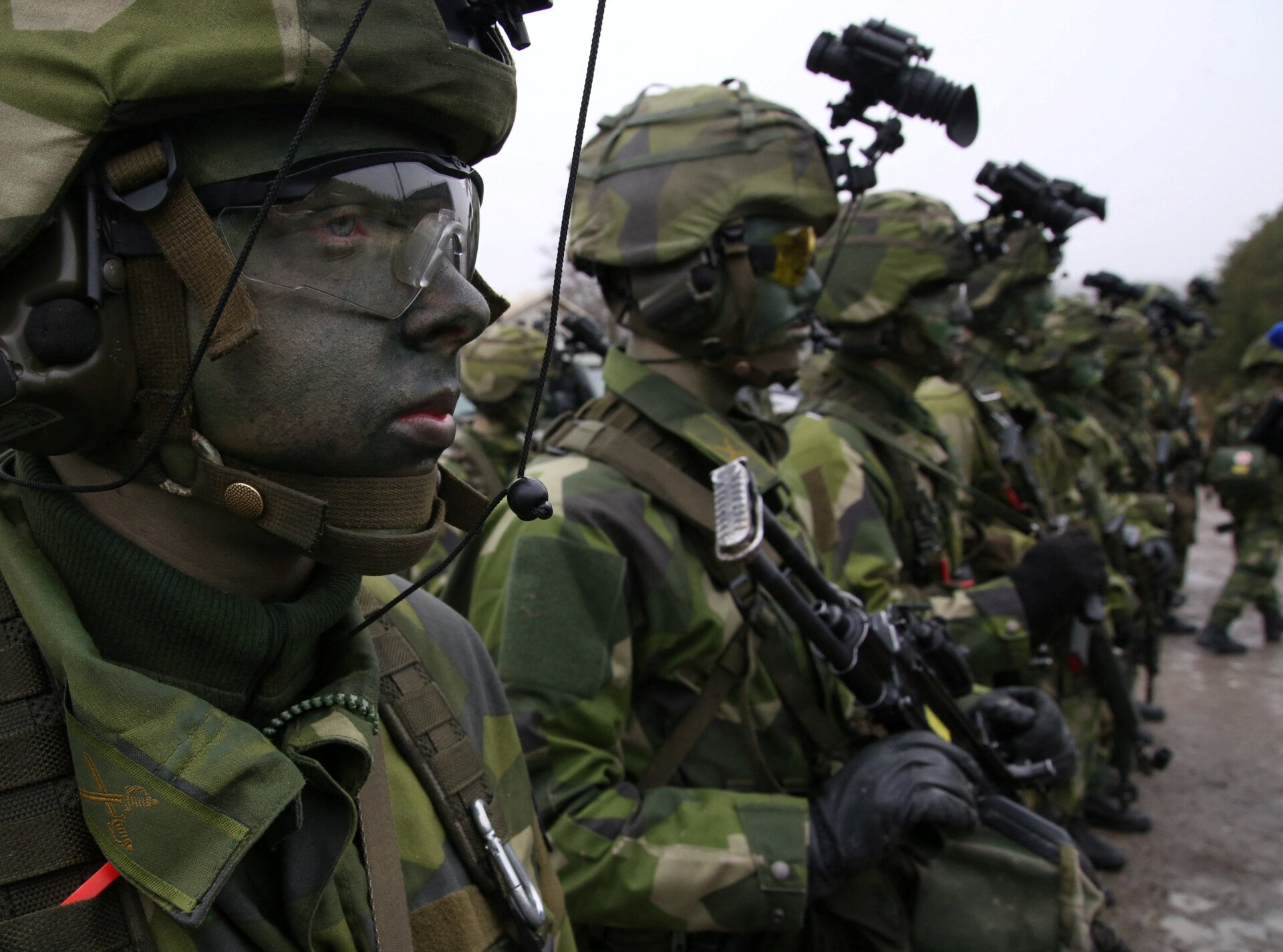
Moscow’s invasion of Ukraine has sharply awakened Europe to the need for combat-ready armies. European intelligence officials say Russia expects conflict with NATO over the next decade and aims to create a standing army of 1.5 million soldiers by the end of 2026. Russia’s military superiority over Ukraine will continue to grow, “unless Western countries rush to intervene.” A US intelligence official said.
To counter and deter an expansionist Moscow, the United States and many of Russia’s close neighbors are seeking to attract soldiers to bolster their militaries.
But not in Sweden, where thousands of young men and women are rejected by the armed forces every year (despite the complaints of some officers).
They want the best
As the youngest member of NATO, Sweden is betting that the best way to bolster its defenses against Russian aggression is to equip its military with the best, the Wall Street Journal reports. Compulsory conscription according to the Swedish model was now a filter, not a safety net.
All young men and women in Sweden must enlist, but strict exams separate the cream of the crop from the rest. This process reduced the 15-month period of military service to service Of high standing.
Recruits fight hard to earn their ranks in the armed forces. After their success, they join the country’s reserves for 10 years or until they reach the age of 47.
Highlighting talents that are in demand
The system has been proven They have been largely successful in identifying talent, with former recruits being hired by public management, while also being evaluated by technology companies.
Conscription was common throughout Europe in the 19th century, when countries like France and Germany ran their armed forces primarily with men from the lower classes – and Russia often practiced a coercive version of this.
After the end of the Cold War, most countries abandoned this practice.
But Sweden Apart from a short hiatus during 2010, It has relied on forced conscription for more than a century.
As of 2017, around 100,000 Swedes each year have to complete an online questionnaire for the armed forces. Of these, about 20% are selected to undergo psychological and physical examinations, and of these 20%, about a third receive the coveted “ticket.”
Of the approximately 100,000 young Swedes who had to register this year, only 6,200 got the coveted ticket. – Annual growth of just over 10%. The country aims to reach 8,000 lottery winners next year and 10,000 the following year.
Painful tests
The selection of recruits is based on grueling tests of physical and mental ability and intelligence testing. Health problems such as allergies, asthma or eczema can disqualify recruits.
About the main strengths and high motivation of the candidate.
Alarm bell in 2013
When the Berlin Wall fell, Sweden dismantled huge parts of its military infrastructure and reduced its troop strength by more than 90% compared to its peak in the 1960s.The Supreme Commander of the Swedish Armed Forces sounded the alarm in 2013, saying that the country would only be able to defend itself against war for a week.
Today, Sweden can mobilize about 66,000 men in uniform, including about 12,000 reservists and more than 20,000 National Guard soldiers, compared to 850,000 men and women at the height of the Cold War in the 1960s.
The goal is to increase the number of active-duty personnel to more than 100,000 by 2030.
In demand in the private sector
Because the Swedish military service Attracts the best of every generation, Private sector employers value former soldiers. After 14 months of military service in Afghanistan, as an Iranian language interpreter, Anders Frieden was intercepted at the Swedish embassy in Tehran.
Since then, he has worked as a business consultant in the US and now works for a technology company in Zurich. The 35-year-old said all his employers appreciated the skills his military service had taught him.
“I think there is recognition of what we do from the community,” he said.
naftemporiki.gr

“Hipster-friendly coffee fanatic. Subtly charming bacon advocate. Friend of animals everywhere.”





More Stories
F-16 crashes in Ukraine – pilot dies due to his own error
Namibia plans to kill more than 700 wild animals to feed starving population
Endurance test for EU-Turkey relations and Ankara with Greece and Cyprus